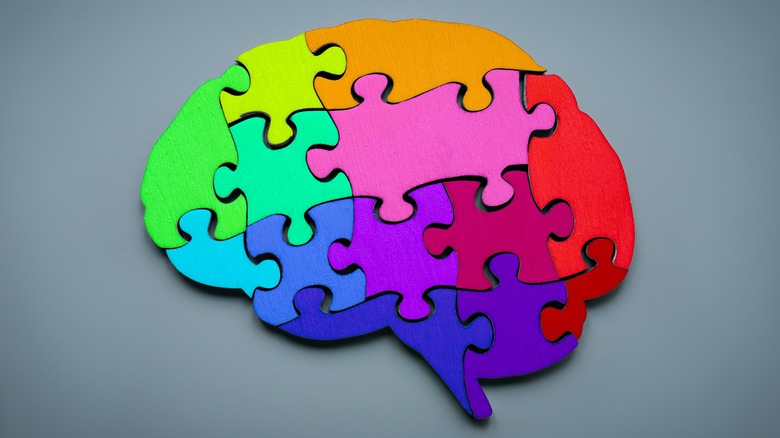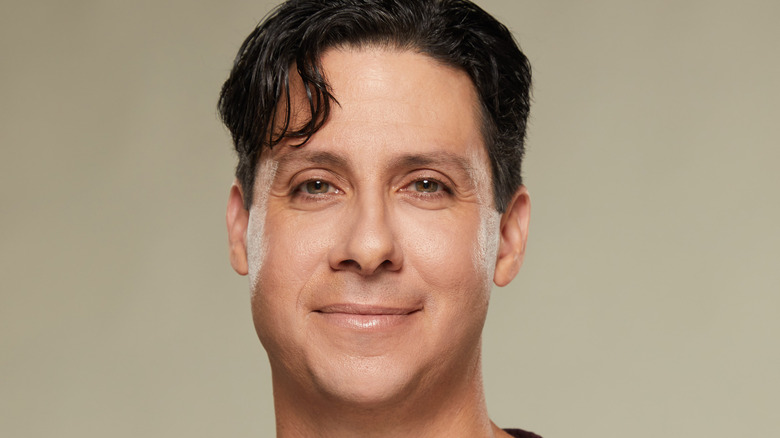Some neurodivergent children are overlooked, and their issues can go undiagnosed for years. This is particularly true for kids who don’t fit into the learning disability stereotype. “It is very common for neurodivergent children with more subtle presentations of learning differences to go undiagnosed in childhood, or to be diagnosed significantly later than children with more noticeable forms of misbehavior or learning difficulties,” states Dr. Andrew Kahn. This is seen quite often in girls, as scientific studies suggest that young girls are more often underdiagnosed compared to boys.
Dr. Kahn is a licensed psychologist who works for Understood, a non-profit working to support the neurodivergent community. He has been working with individuals who think and learn differently for almost 20 years. In an exclusive interview with Health Digest, Dr. Andrew Kahn talked about some of the most common mental health and learning challenges that children face and the impacts on mental health when neurodivergent children live undiagnosed.
Remove the stigma

According to Dr. Andrew Kahn, one of the biggest reasons kids go undiagnosed is due to the stigma attached to it. Parents may be concerned about a “learning disability” label, or have misconceptions about what learning and thinking differently really looks like. The word “disability” holds a heavy weight — many people wrongfully assume someone with a disability is helpless (via NCALL). “Harmful biases and misconceptions exist — that the child is not smart, or that the diagnosis is a product of bad parenting — that can make neurodivergent kids and their families feel ‘less-than’ or alone,” says Dr. Kahn. It’s important to remember that just because someone learns and thinks differently, there is nothing wrong with them. “Learning and thinking differences are variations in how the brain processes information, and they can impact children’s emotional, social, and academic development,” explains Dr. Kahn.
The signs of learning and thinking differently can show up in many unique ways. According to Dr. Kahn, children with learning differences might have test anxiety, struggle to process criticism, or experience anxiety about the future. They can also have physical manifestations of their anxiety, like feeling nauseous, not wanting to eat, or experiencing mood swings.
Mental health impacts of living undiagnosed

Some children with attention deficit hyperactivity disorder (ADHD) might exhibit hyperactivity and impulsive behaviors, while others have more internal symptoms, like task avoidance, withdrawal, not wanting to speak, fearfulness, anxiety, or depression. Internalized challenges are usually less obvious and often misinterpreted by adults. “Neurodivergent children who go undiagnosed are more susceptible to being misidentified as oppositional, ‘naughty,’ or lazy when their needs for intervention, social skills support, and learning differences go unmet,” states Dr. Andrew Kahn.
“The impact of going undiagnosed can be significant, as current research indicates that children with learning and thinking differences are already at greater risk for mental health challenges,” says Dr. Kahn. For example, children with ADHD are more likely to experience anxiety and depression (via Understood). In addition, the Neurodiversity and Stigma Study by Understood reported that neurodivergent children were far more likely to struggle with managing emotions, anxiety about going to school, and self-confidence. Living undiagnosed means that these children don’t receive the support they most likely need for these challenges, which may even exasperate issues. With support, neurodivergent children have a better chance of thriving in life (via Understood).
Dr. Kahn recommends adults always observe children’s behavior critically while leaving stigma and preconceived notions at the door. This can help them stay more open-minded about a child’s behavior and be able to identify if there is an undiagnosed learning and thinking difference present. Remember that every child is different and signs can vary in different situations.
The mission of Understood is to help those who learn and think differently discover their potentials, take control, find community, and stay on positive paths along each stage of life’s journey.




